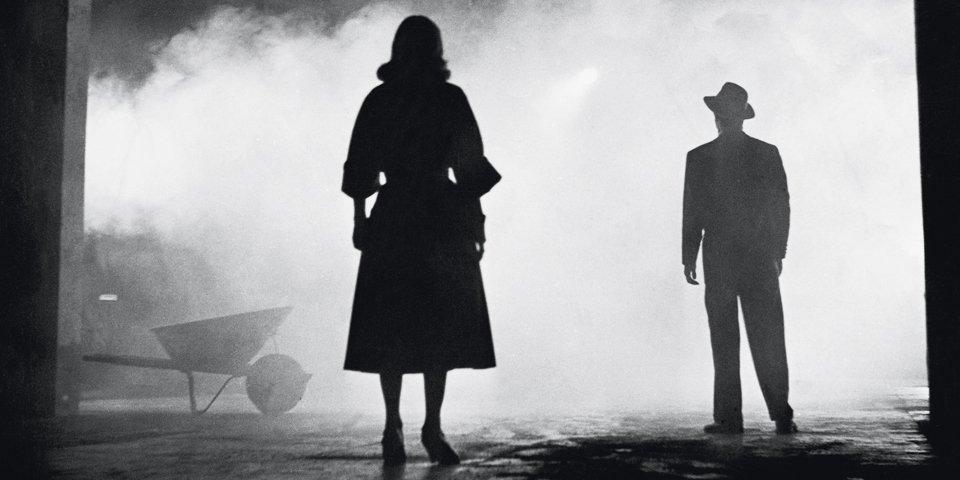
During the 1940s and 50s, Hollywood entered a “noir” period, producing riveting films based on hard-boiled fiction. These films were set in dark locations and shot in a black & white aesthetic that fit like a glove. Hardened men wore fedoras and forever smoked cigarettes. Women played the femme fatale role brilliantly. Love was the surest way to death. All of these elements figured into what Roger Ebert calls “the most American film genre” in his short Guide to Film Noir.
If you head over to this list of Noir Films, you can find 60 films from the noir genre, including some classics by John Huston, Orson Welles, Fritz Lang and Ida Lupino. The list also features some cinematic legends like Humphrey Bogart, Peter Lorre, Barbara Stanwyck, Edward G. Robinson, and even Frank Sinatra. Hope the collection helps you get through the days ahead.
Would you like to support the mission of Open Culture? Please consider making a donation to our site. It’s hard to rely 100% on ads, and your contributions will help us continue providing the best free cultural and educational materials to learners everywhere.
Also consider following Open Culture on Facebook and Twitter and sharing intelligent media with your friends. Or sign up for our daily email and get a daily dose of Open Culture in your inbox.
Related Content
The Essential Elements of Film Noir Explained in One Grand Infographic
The 5 Essential Rules of Film Noir
Roger Ebert Lists the 10 Essential Characteristics of Noir Films
4,000+ Free Movies Online: Great Classics, Indies, Noir, Westerns, Documentaries & More60 Film Noir Movies Online is a post from: Open Culture. Follow us on Facebook and Twitter, or get our Daily Email. And don't miss our big collections of Free Online Courses, Free Online Movies, Free eBooks, Free Audio Books, Free Foreign Language Lessons, and MOOCs.
from Open Culture https://ift.tt/3J5qF9h
via Ilumina
Comments
Post a Comment